Announcing the ASF’s 2021 Broome & Allen Fellowship and Scholarship Recipients
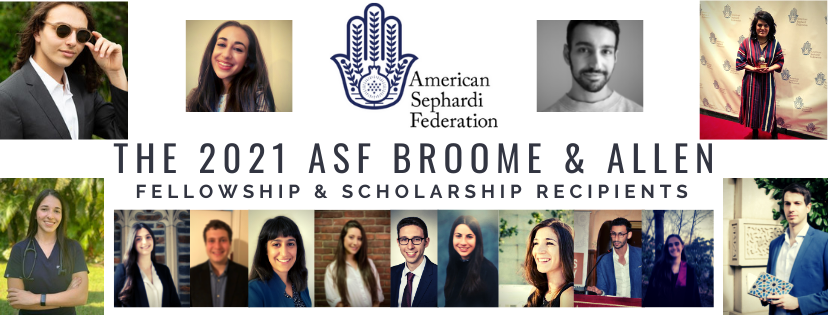

(NEW YORK, NY) May 20, 2021 – The American Sephardi Federation congratulates the 24 Broome & Allen Fellowship & Scholarship Recipients for 2021! Dedicated to recognizing impressive academic accomplishments and service on behalf of the Greater Sephardic community, the ASF’s Broome & Allen Endowment also encourages excellence in the field of Sephardi Studies.
This year’s recipients are engaged in undergraduate and graduate study at the world’s top universities, including Chicago, Columbia, Cornell, Duke, Glasgow, Harvard, Martin Luther, Mohammed V, NYU, Sciences Po Bordeaux, Sorbonne, Stanford, and the Technion. The 18 Fellowships are being awarded to graduate students in the following categories: Educators, Social Entrepreneurs, & Community Builders; Film & Music; Medicine; and Scholars.
ASF Broome & Allen Fellows and Scholarship Recipients represent and reflect the rich diversity of the Greater Sephardi world in their family backgrounds as well as research interests. Amongst the recipients are students from Germany, Israel, Morocco, Panama, Spain, and Venezuela.
Starting in the fall semester, Fellows will be able to utilize the ASF’s Sephardi Scholars Center at The Center for Jewish History as a hub for research and place for them to conduct seminars, classes, lectures, and discussions. Fellows are also eligible for additional research, conference, teaching, and publication grants, as well as to have their work featured in the ASF’s Sephardi World Weekly, Sephardi Ideas Monthly, and The Sephardi Report.
David E.R. Dangoor, President of the American Sephardi Federation, says: “These young students represent an important ingredient securing ASF’s mission to preserve and promote the history, traditions, and rich mosaic culture of Greater Sephardic communities. So we greatly appreciate them and their Sephardic Jewish values being present at these excellent educational institutions.”
ASF Broome & Allen Scholarship Recipients are innovators taking initiative, connecting Jewish pasts and presents. They include one student who was a Bronfman Fellow and speaker at the ASF’s third New York Ladino Day in 2020; a senior studying the History of Architecture and Urban Development at Cornell University while pioneering the new Jewish activism, including by co-founding Jewish on Campus (another recipient, a University of Chicago undergrad, is the CEO of Jewish on Campus); and the winner of the prestigious In Vitro Biology Award and first place at the New Jersey FFA State Agriscience Fair. Four recipients—Isaac de Castro, Julia Jassey, Andrew Marcus, and Benjamin Zatz—are ASF Young Leaders.
Daniel Stauber, who is valedictorian of the Buckley School’s Class of 2021 and will be attending Stanford University in the fall, sees the ASF Broome & Allen Scholarship as an opportunity to continue his family’s tradition of American Sephardi leadership: “I aspire to be like my great-great-grandmother one day, making an impact on the world around me, both locally and globally.” Stauber’s “great-great-grandmother, Leah Cohen (Mrs. Marco Cohen), helped found the Sephardic Home for the Aged” formerly in Brooklyn, and her son, his “great-grandfather Moses M. Cohen… was an original founder, attorney, and president of the Sephardic Jewish Brotherhood of America. He was born in Izmir, Turkey in 1904 and emigrated with his family in 1912 to avoid the persecution of the Sephardic Jews in Turkey.” The archives of both the Sephardic Jewish Brotherhood of America and Sephardic Home for the Aged are integral parts of the ASF’s National Sephardic Library & Archives.
Another recipient continuing a family tradition is Isabella Rose Soffer, an accomplished Duke University Economics major, who is the granddaughter of former ASF Vice President Clement Soffer.
ASF’s Broome & Allen Fellows include a scholar of Judeo-Arabic, Ottoman Turkish, Hebrew, and Ladino who is the sole recipient of the NYU Torch International Research Fellowship for 2020-2021; a narrative researcher at Columbia explicating the lives (including love letters) of her grandparents in mid-20th century Morocco; a former Fulbright scholar who studied Yemeni Jewish narrative construction in Israel and British colonial complicity in anti-Jewish violence in ‘Aden, Tripolitania, and Mandate Palestine, whose articles have been featured in the New York Times, The Hill, Haaretz, and Tablet Magazine; the CEO of Ladino 21, an online initiative to preserve Judeo-Spanish for the 21st century; a Moroccan scholar in Germany researching children’s stories in Judeo-Maghrebi literature; the creator of a unique Heritage Program that has recorded over 400 oral history interviews with recent Sephardic Jewish immigrants from Egypt, Lebanon, Iran, Iraq, Mexico, Panama, and Syria; the Sephardi-Israeli Duke University grad student who is already managing tours and productions for American bands, such as Tame Impala; a medical ethicist, with a dual appointment to Bar-Ilan University and the Technion, who is researching the application of Maimonidean principles to contemporary medical practice; and the ASF Ronit Elkabatz A”H “Rising Star” Pomegranate Award and NYU Fusion Film Festival’s Grand Prize-winning Yemenite-Israeli filmmaker—a recipient of the NYU Tisch Dean’s Fellowship, ISEF Nina Weiner & Lily Safra International Fellowship, and NYU Provost Writing Fellowship in London—whose films have premièred at the Montreal World Festival and Venice International Film Festival.
ASF Broome & Allen Fellow Andrew Marcus, founder of the Greek Jewish Festival and brother of a past Broome & Allen Scholarship Recipient, said he “is grateful for all that ASF does to perpetuate our beautiful heritage and support the next generation of our community.”
The Broome & Allen Fund was founded over 70 years ago by a group of Sephardic businessmen determined to provide a vacation for hundreds of children who otherwise would not be able to escape the hot and humid summers of New York City. As the need for this service waned, the Fund began to offer scholarships. Since the year 2004, over one hundred grants have been awarded.
Murray Farash, the last of the original Broome & Allen Fund Board Members and a distinguished ASF Board Member, says: “These exceptional young people represent the best of our Sephardic community and we are glad to encourage and nurture their development.” ASF’s Executive Director Jason Guberman added: “This class of brilliant scholars and promising students are a credit to Murray’s dedication and determination to perpetuate the Broome & Allen legacy.”
For more information: please see https://americansephardi.org/projects/scholarships/ and https://americansephardi.org/news/announcing-the-asfs-2018-broome-allen-fellowship-and-scholarship-recipients. Applications are accepted on a rolling basis. Alumni are encouraged to update the ASF about their accomplishments. Donate now to support the ASF Broome & Allen Fellows and Scholarship Recipients. To sponsor a scholarship or fellowship, please write to info@americansephardi.org.
ASF Broome & Allen Fellows
Scholars:
Youness (Yona) Abeddour
Ben Gurion University of the Negev (Israel) & Science Po Bordeaux (France)
Joint-PhD Student, Middle East Studies and Sociology; Thesis: “Negotiating and Performing Moroccan Identities: Second and Third Generations of Moroccan Jewish Immigrants to France and Israel
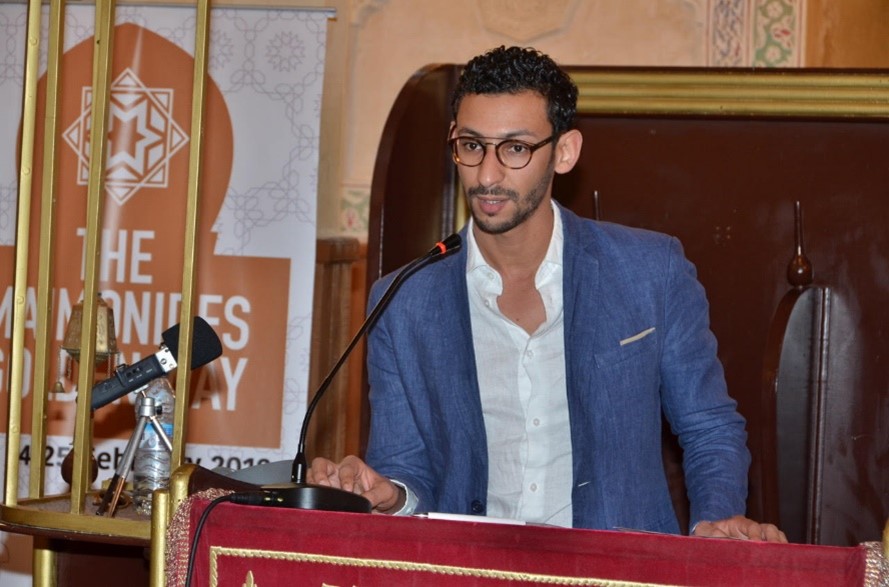
Born and raised in Morocco, is a joint PhD student at Ben Gurion University of the Negev in the Middle East Studies Department (Israel), and Sciences Po Bordeaux at Centre Émile Durkheim for Political Science and Comparative Sociology (France). His multi-disciplinary research entitled “Negotiating and Performing Moroccan Jewish Identities: Second- and Third-Generation of Moroccan Jewish Immigrants to France and Israel” examines identity formation among Moroccan Jewish families based in France and Israel. While this study focuses on the family from a micro scale, its guiding question seeks to explore the ways in which “Moroccanness” is perceived and expressed in two different diasporas. Along with Dr. Orit Ouaknine-Yekutieli, Yona is the co-founder of Bladna, a group of research and action meant to strengthen the links between the worldwide Moroccan diaspora, of all ethnicities and religions, and their homeland Morocco.
Ilan Michael Benattar
New York University
Joint PhD in History/Hebrew & Judaic Studies; Focus: Late 19th/Early 20th century Debates Amongst Ottoman Jewish Intellectuals on the Ideological and Material Construction of “Exile.”
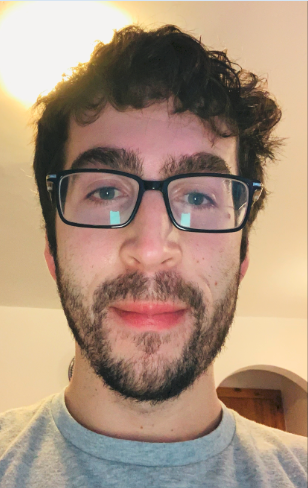
Ilan Benattar is a Moroccan-American doctoral candidate in the Joint Ph.D. Program for Hebrew & Judaic Studies/History at New York University. He holds a B.A. summa cum laude in Arabic Studies & History from Binghamton University and an M.A. in Middle Eastern Studies from CUNY Graduate Center. His research interests revolve around the modern intellectual history of late Ottoman Jewish communities, with particular focus on the noted Sephardic intellectual Abraham Galante (1873-1961). He has presented his work vis-à-vis Sephardic Jewry, Judeo-Arabic and Ladino linguistics, Medieval Jewish literature, and Critical Jewish Geographies at numerous professional academic conferences. Ilan is the sole recipient of the NYU Torch International Research Fellowship for 2020-2021. He has also been awarded numerous grants to subvent archival research costs and to engage in long-term overseas study of Arabic and Turkish languages. Finally, Ilan is a dedicated editor, translator, and freelance book review author who has published in various online and print outlets.
Judith Chriqui-Benchimol
Columbia University
PhD Student in English Education at the Teachers College
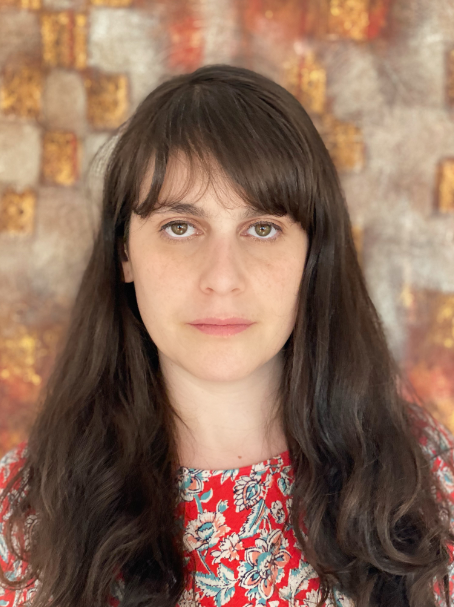
Judith Chriqui Benchimol holds a Masters degree in Life Writing from University of East Anglia and is presently a Ph.D. student and nonfiction writing lecturer at Teachers College, Columbia University. Her current research project uses narrative research methods to examine her grandparents’ lives in mid-twentieth century Morocco. In the composition classroom, Judith uses Sephardic Jewish narratives to offer alternative representations of Jewish identity.
Moisés Hassan Bendahan
Stony Brook University
PhD Student, Department of Hispanic Languages & Literature; Thesis: “First-Generation’s Dislocation in American Comics” (working title)
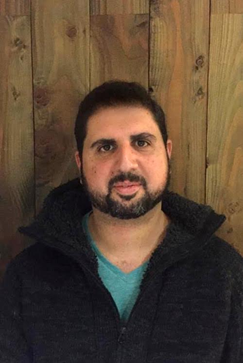
Moisés Hassan Bendahan is a doctoral candidate in the Department of Hispanic Languages and Literature at Stony Brook University. Born and raised in Spain, Hassan Bendahan grew up in a Jewish-Moroccan household. His research deals with the visualization of ethnicity in comics and graphic novels. Currently, he is working on a dissertation project that studies the depiction of Asian American and Latinx experiences in American comics. His work has been funded by the Public Humanities Fellowship, through which he is implementing a project called “Empowering Through Visual Narratives,” a workshop series for middle school students that facilitates reading and creating comics. He is also co-founder of Pensando Xibānyá, an online platform that hosts events and material related to Chinese identity in Spain and the #NoSoyUnVirus movement. As a Sephardic scholar, his research explores how the negative notion of “the Jew” has been perpetuated in Spain, centuries after the Jews were expelled, by analyzing the visual component.
Khadija Benthami
University of Bayreuth (Germany) and Université Mohammed V (Morocco)
PhD Candidate, International Graduate School of African Studies; Thesis: “Children’s Stories in Judeo-Maghrebi Literature”
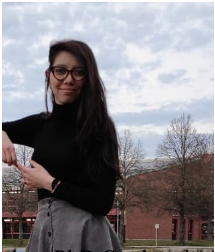
Born and raised in Morocco and based now in Germany. Currently a PhD Student in a Co-tutel program between Mohammed V University in Morocco and Bayreuth University in Germany. I am interested in Judeo-Maghrebian literature (Morocco-Algeria-Tunisia) particularly “female” production. my motivations to carry out this research are due to the scarcity of studies focusing on Judeo-Maghrebian female production: the identity issue has always been studied in the light of the writings of Judeo-Maghrebian “male” authors who provide narration and description of what is happening outside and within the home. This is why our intention is to examine this construction of identity from a corpus made up of “women” authors belonging to the countries of the “petit” Maghreb. We are far from comparing “feminine” and “masculine” writing or granting our work a feminist or gender dimension. But we would like to know how this Judeo-Maghreb identity is conceived by women.
Sophie Call
University of Glasgow
Master’s Degree Candidate, Applied Linguistics (with a focus on Ladino and Ladino-speaking communities)
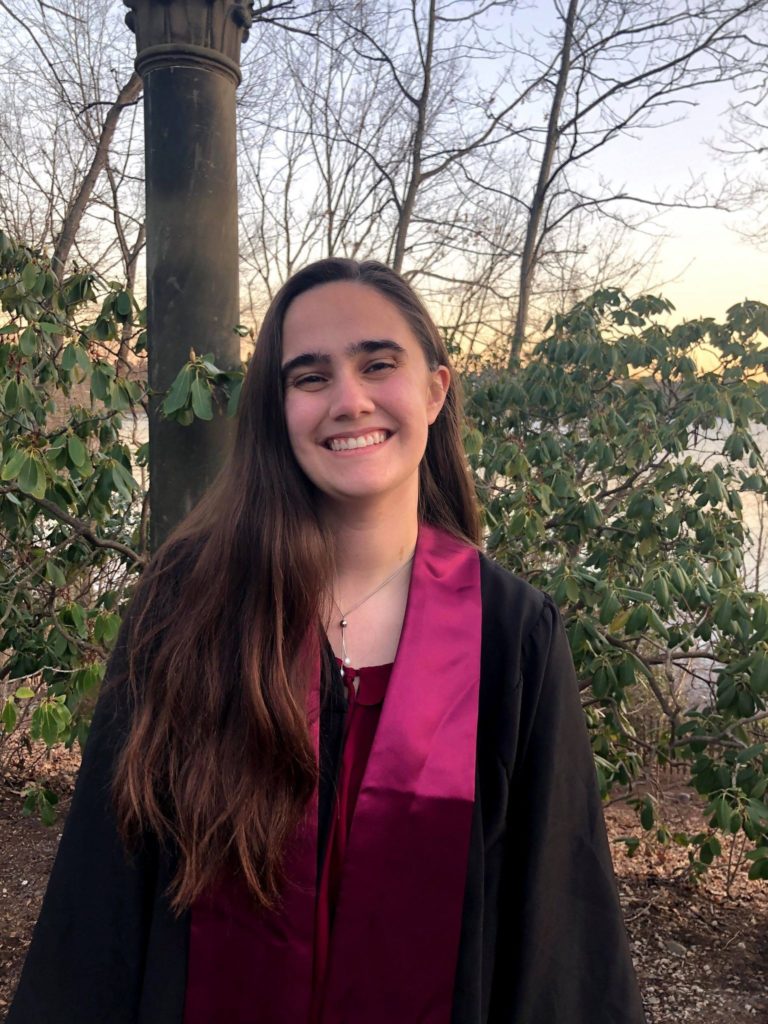
Sophie Call is a Master’s student at the University of Glasgow in Scotland, where she studies Applied Linguistics. While an undergraduate student at Wellesley College, she spent two summers as a research assistant with Diarna: The Geo-Museum of North African and Middle Eastern Jewish Life. Working with Diarna developed her interest in using her linguistics background to study language and identity in Ottoman Sephardic communities, and resulted in a paper, Language policy and the integration of Alliance Israélite Universelle schools into Thracian society: 1867-1897, which received an honorable mention at the Northeast Modern Language Association’s annual conference in 2020. Research on Jewish languages within linguistics fields is often limited to that on Hebrew and Yiddish, and Sophie hopes to continue to add to the body of linguistic research on Ladino and Ladino-speaking communities.
Benjamin Gladstone
New York University
PhD Student in Hebrew and Judaic Studies & History
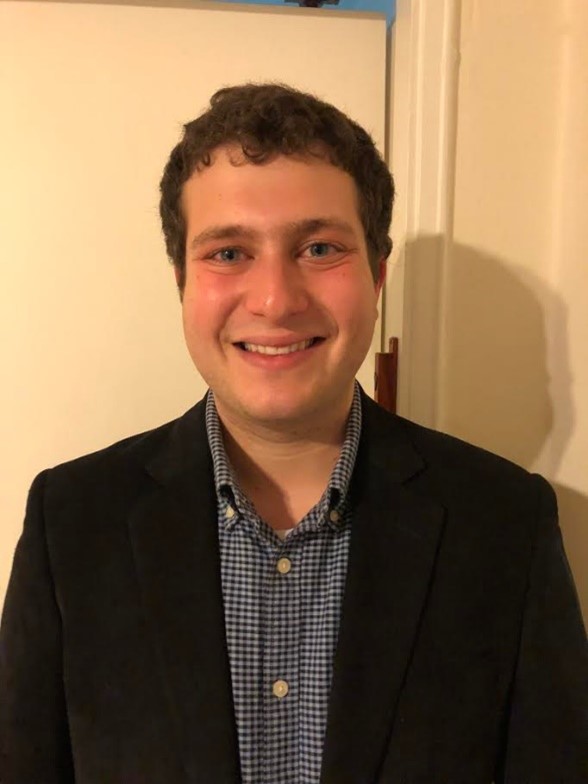
Benjamin Gladstone is a PhD candidate in Hebrew and Judaic Studies and History at New York University’s Taub Center for Israel Studies. His research focuses on Operation On Eagles’ Wings and on Yemeni Jewish history and politics in the Yishuv and Israel. He graduated from Brown University in 2018 magna cum laude with honors in Middle East Studies and a Phi Beta Kappa membership. He wrote his Middle East Studies thesis on the idea of an “Ingathering of Exiles” in relations between Jewish communities in the United States, Israel, and Yemen and his Judaic Studies capstone on state-sponsored secularist coercion and anti-Mizrahi racism in 1940s-50s Israel. As a Fulbright scholar in Jerusalem from 2018-2019, he studied Yemeni Jewish narrative construction in Israel and British colonial complicity in anti-Jewish violence in ‘Aden, Tripolitania, and Mandate Palestine. He has presented at academic conferences and in informal seminars on issues in modern Yemeni Jewish thought, Zionist and Israeli history, and Mizrahi and Sephardi migration history. Benjamin is a Wexner Graduate Fellow. His opinions and news writing has been published by Sephardi Ideas Monthly (see “A Mizrahi in MAPAI: Sephardi Agency in ‘Aliyah Activism”), the New York Times, the Forward, Tablet Magazine, Haaretz, and The Hill. In addition to his formal dissertation research, Benjamin is translating, annotating, and sometimes teaching about works of Mizrahi and Sephardi Zionist thought with an eye to developing those works into a more formal collection. He lives with his fiancée, Raizel, in Washington Heights.
Carlos Yebra López
New York University
PhD Student, Spanish & Portuguese Department; Focus: Judeo-Spanish and the Relationship between Language and Politics in Contemporary Spain
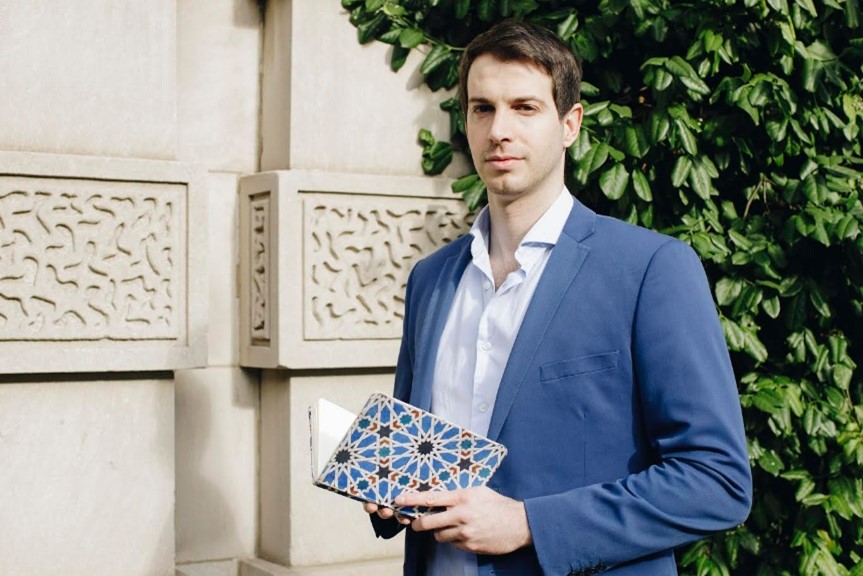
Carlos Yebra López was born and raised in Zaragoza, Spain. A 2014 Fulbright Fellow, he holds a PhD in Spanish from New York University, where he currently works as a postdoctoral lecturer, and serves as a Research Assistant in Judeo-Spanish Grammar at the University of Birmingham, UK.
His scholarly research focuses on the revitalization of Ladino by digital means. In 2017 together with Alejandro Acero and Benni Aguado, he co-founded Ladino 21, a public outreach initiative and digital archive devoted to grassroots documentation of Ladino through audiovisual materials in Ladino produced in the 21st century. Ladino 21 enables Ladino speakers worldwide to document the multiple histories and versions of their common identity in various ways, with a focus on semi-structured interviews. In 2019, he co-created a Ladino online course at uTalk, Britain’s biggest interactive language learning software, and released it at the academic conference Saved by the Digital: Ladino Communities of the 21st Century (University of London), co-organized with Alejandro Acero and Dr. Julian Weiss. He has also disseminated his research in specialized fora such as The Jewish Telegraph, Radiosefarad.com, Aki Yerushalayim, El Amaneser, and Sephardic Horizons, as well as industry venues such as The Language Event and The Polyglot Conference.
His forthcoming book chapter ‘Medievalist Passports: Contested Rights of Return for the Descendants of Medieval Iberian Jews and Muslims’ (Al-Andalus in Motion: A Travelling Concept, Boydell & Brewer, 2021), allows us to understand the ideological role played by the Sephardim within the broader context of the weakening of the (Spanish) nation-State in a globalized scenario. This is key to his understanding of Judeo-Spanish as a privileged site of the Global Hispanophone, i.e., of how Ladino can spawn creative responses to standardized Spanish that throw into question its geographic, cultural and linguistic borders as a language of imperial power. This crucial interrogation is transversal to his recent manuscripts: ‘The Digital (De)territorialization of Ladino in the 21st century’ and ‘Decolonizing Spanish?: Ladino and Chavacano and Sites of Global Hispanophonia’. In 2020 he obtained a visiting fellowship to develop and share his research on Ladino at the University of Cambridge in Summer 2022. Since 2020, he is the CEO of Ladino 21 Community Interest Company (Non-Executive Director: Alejandro Acero; External Advisor: Eliezer Papo), which is based in London, UK (www.ladino21.org).
Maytal Mizrachi
Martin-Luther-University Halle-Wittenberg
PhD Student in Jewish Studies; Focus: Sephardi Society
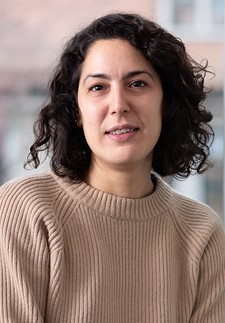
Maytal Mizrachi is a PhD candidate in the Oriental Institute at MLU Halle- Wittenberg, Germany. Her current project is about the Empowerment of Sephardim by the newspaper “The Orient” which was published in Jerusalem in a transition time from British mandate to the state of Israel. She seeks to bring to light Sephardic figures; men and women and discover more about the history of different Sephardic communities in the Middle East. For most of her life she lived in her favorite city – Jerusalem.
Nathan Damberger Peres
Paris-Sorbonne University (France)
PhD Student, Middle East History; Thesis: “La tendre mère: Identity Formation and the Role of the Alliance Israélite Universelle Schools for the Jews of Beirut (1943-1975)”

Nathan Peres is a PhD candidate in Contemporary History and Middle Eastern studies at the universities of Sorbonne Paris IV, Florence in Italy as well as the Rhenish Friedrich Wilhelm University of Bonn. His French doctoral thesis entitled « LA TENDRE MÈRE » : L’ALLIANCE ISRAÉLITE UNIVERSELLE ET LA FORMATION IDENTITAIRE DES JUIFS DU LIBAN (1943-1975) deals with the history of Lebanon’s Jewish community from the end of the French mandate period in 1943 and the creation of State of Israel in 1948 to its disintegration and dispersion in the aftermath of the 1967 Six-Day War. he focuses hereby on the crucial place the Alliance Israélite Universelle (AIU), the community’s main educational institution, occupies in the identity formation of its former members to this day.
Born to a Persian-German family in Munich he had the opportunity to spend a significant time in Pakistan as a child before immigrating to Israel as a young adult where he finished his BA in Hebrew in Government at the IDC Herzliya before pursuing his double major MA (Magister) in Iranian & Islamic Studies. Before embarking on his PhD, Nathan Peres worked a year in Tajikistan. He is currently employed as a research and teaching assistant at Aix-Marseille University in Southern France.
Educators, Social Entrepreneurs, & Community Builders:
Batsheva Baraban
Harvard University
Master’s Degree Candidate, International Education Policy; Focus: Improving Educational Opportunities for Sephardim in Israel
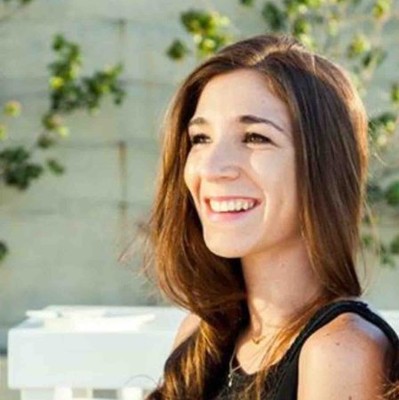
I grew up with two Sephardi grandmothers of Algerian descent. My grandfathers, both Polish, lost their family members in the Holocaust and did not possess significant Jewish customs. My grandmothers were the ones who gave the tone in the family and raised my parents according to Algerian Jewish traditions and customs. My grandmother’s stories about her successful life journey immigrating from Algeria to France have always been contrasted by how I witnessed the integration of Sephardi in Israel; How come the majority of Algerian-Jews in France had finished college and positioned themselves in the upper socio-economic classes of society, while in Israel, many quit high school and are having a hard time finding higher-income employment. I witnessed these stories throughout my life – at first in school and the local community in Jerusalem; and later on, as an educator in military prison – teaching classes in which more than half of my soldiers were Sephardic who ended up in jail mainly because they had to break the law and defect to provide for their families instead of serving in the military. Fortunately, I had the privilege to receive a great education with outstanding teachers who always pushed me forward. Majoring Summa Cum Laude in Poli-Sci and Philosophy, my passion for education as a means to redress societal shortcomings and promote individual transformations ultimately led me to the creation of an educational startup – Integraliah – aimed at helping new immigrants successfully integrate into the Israeli society. Three years later, we have built an inclusive community by teaching Hebrew and Israeli culture to more than 3,000 students. Growing up in Jerusalem, with parents living on different continents, my childhood was one of contradictions. With my secular father based in France and my observant mother residing in Israel, I found myself constantly negotiating gaps between disparate cultures. Today, I see how my life pursuits, both personally and professionally as an educator, have sought to bridge such cultural gaps by conceptualizing contradictions as diversity, and transforming conflict into dialogue. My life goal is to devote my efforts to level the playing field for minorities in Israel.
Susan Joy Kasavi
Magen David Yeshivah Elementary
Teacher, Jewish Studies; Focus: Syrian Sephardic History and Culture
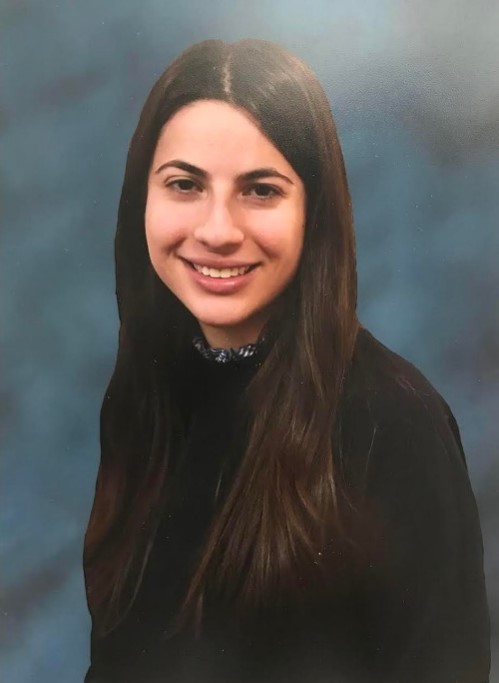
Susan Kasavi Dayan is the Jewish History Teacher at Magen David Yeshivah. She earned her master’s degree in Medieval Jewish History from Yeshiva University’s Bernard Revel Graduate School of Jewish Studies, where she focused on the origins of the Sephardic Community in Iberia through modern times. Susan earned her bachelor’s degree in Judaic Studies from Brooklyn College, where she was the recipient of the Stanley Schiff Memorial Award, Israel Gerber Memorial Award, Lena Epstein Tucker Award in Judaic Studies, and Iris J. Giannota and Yolanda G. Jacobs Scholarship. Through her work as an educator, Susan has created a unique Heritage Program that documents interviews and life stories of recent Sephardic Jewish immigrants from Syria, Egypt, Lebanon, Turkey, Iran, Iraq, Panama, and Mexico, which to date contains over 400 accounts. Further, she traces genealogies from her students going back at least four generations. One of her primary goals is to continue to record as many genealogies and family histories as possible so that this information will be documented for generations to come. In addition, Susan worked with the Sephardic Heritage Museum to develop a curriculum of Sephardic Jewish history based on their film series. From a young age, Susan has been very passionate about her diverse Sephardic heritage. Her father was born in Istanbul, Turkey and spoke Ladino, among other languages; her maternal grandmother was raised in the Syrian Jewish Community of Manchester, England, and her maternal grandfather, whose roots stem from Cairo, Egypt and Aleppo, Syria, was born in Port au’ Prince Haiti. In her free time, Susan enjoys yoga, art, and flower arranging.
Andrew Marcus
Hunter College, City University of New York
Master’s Candidate, Urban Planning; Social Entrepreneur; Community Builder; Focus: Greek and Balkan Sephardic Community
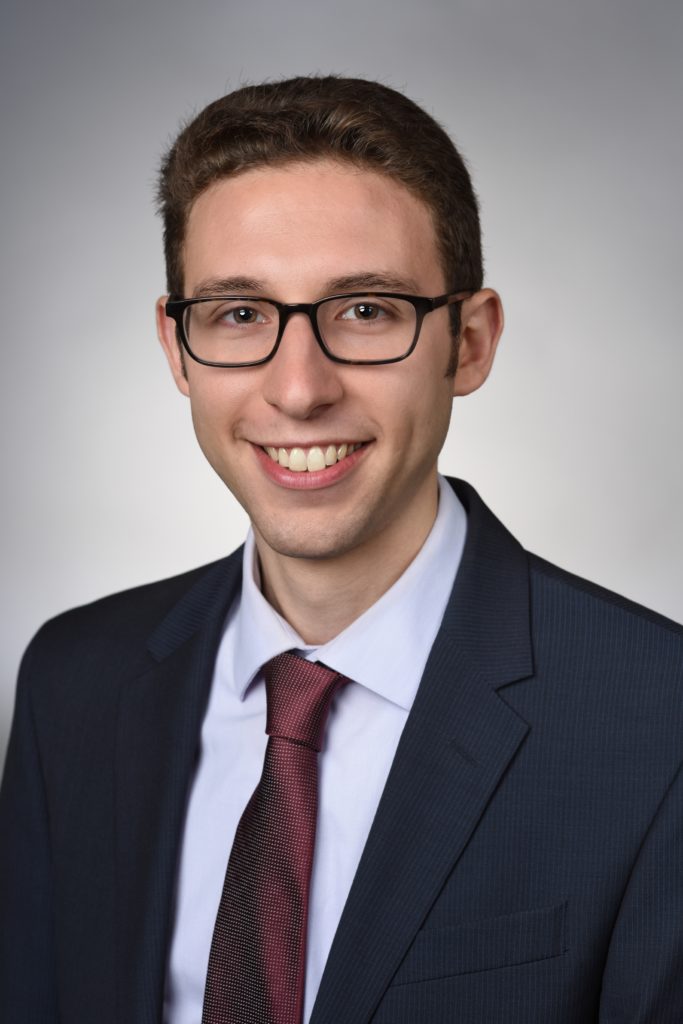
Andrew Marcus is a proud Sephardic Jew and native New Yorker. Andrew is currently a Senior Project Manager at the New York City Department of Small Business Services. In this role Andrew manages commercial revitalization grant programs that support small businesses and neighborhoods across the city. Andrew is passionate about public service and giving back to his native city, and is currently pursuing a Masters in Urban Planning at Hunter College. Beyond his urban planning career, Andrew is a dedicated member of the Sephardic and Romaniote community in New York. He is a lifelong member of Kehila Kedosha Janina, where he serves on the Board of Trustees, and is the Founding Director of KKJ’s annual Greek Jewish Festival. Since 2015, Andrew has spearheaded the planning, fundraising, permitting, and execution of this international event which attracts thousands of people to the Lower East Side each year. Andrew is also a lifelong member of the Sephardic Jewish Brotherhood of America, where he serves on their Executive Committee and Central Council. In addition, Andrew helped found the Greek Jewish and Sephardic Young Professionals Network, which is dedicated to connecting the next generation of our Sephardic community through social, professional, and cultural events. Since he was a child, Andrew has attended Sephardic programs at ASF with his family and now serves on ASF’s Young Leaders board. He is grateful for all that ASF does to perpetuate our beautiful heritage and support the next generation of our community.
Medicine:
Katherine Esther Truzman Behar
Nova Southeastern University
Master’s Degree in Physician Assistance
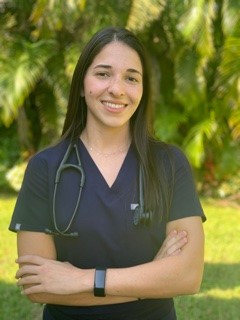
My name is Katherine Truzman Behar and I was born into a small but beautiful jewish community in Caracas, Venezuela. Both my parents, but especially my father, taught me the value that lies in being part of a community like ours and I grew up to love and respect this greatly. I went to one of the very few jewish schools in my country, where I met most of my friends and where I built the foundation of who I am: values, traditions. I moved to the U.S in 2015 for college and graduated from FIU in Miami in 2019 with a degree in Nutrition Sciences. During my undergraduate studies I was able to participate in projects that focused on bringing awareness and collecting money for Venezuelan mothers struggling to feed their babies. Soon after graduation, I was accepted into NSU’s PA (Physician Assistant) program, which is one of my most valued academic achievements because of how highly competitive the program is. During my studies, I have been able to participate and lead my group on a program called IDEA initiative, provided by NSU, in which I prepare and present information about Diabetes to the community. One of my biggest goals in life is being prepared enough to be able to reach my new community here in Miami, and be able to help those around me and improve their health. I believe a big part of this was brought on to me by my father, who is a leader in Venezuela’s jewish community and has worked for the community for over 20 years, asking for nothing in return. I hope I can be a light in my community just like he is.
Esther Knafo
New York University
Doctor of Dental Surgery
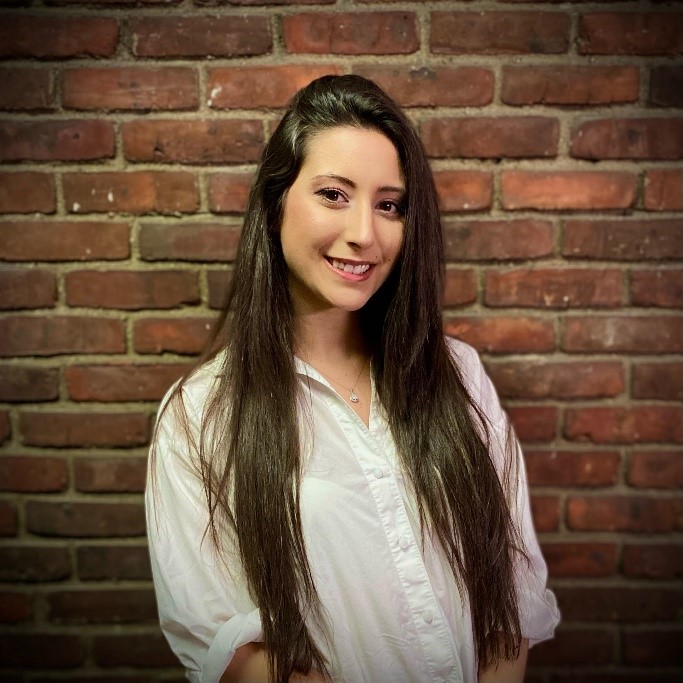
I was born and raised between Morocco and France. At the age of 18, I moved from Casablanca to NYC full of dreams and ambition to become a successful orthodontist in the US. I was awarded my BA in Biology at Stern College for Women, continued my dental education at the prestigious NYU Dental School where I received two honorary research awards in orthodontics and earn my DDS diploma in May 2020. I am currently a dental resident at BronxCare Hospital continuing my training as a general dentist and dedicating my time to treating the underserved community of the Bronx. I envision to work for a few years as a general dentist before applying to Orthodontics programs. I aspire to achieve my professional goals and more importantly my personal goals. I hope to preserve and share my Sephardic heritage and help in return aspiring young professionals to pursue higher education.
Jacob Y. Pesachov
Technion-Israel Institute of Technology (Israel) & Bar-Ilan University (Israel)
Medical Degree Candidate; Master’s Degree Candidate in Jewish Ethics; Focus: Applying Maimonidean Principles to Contemporary Medical Practice, Viz.: “The physician should not treat the disease, but the patient who is suffering from it” ~Rambam
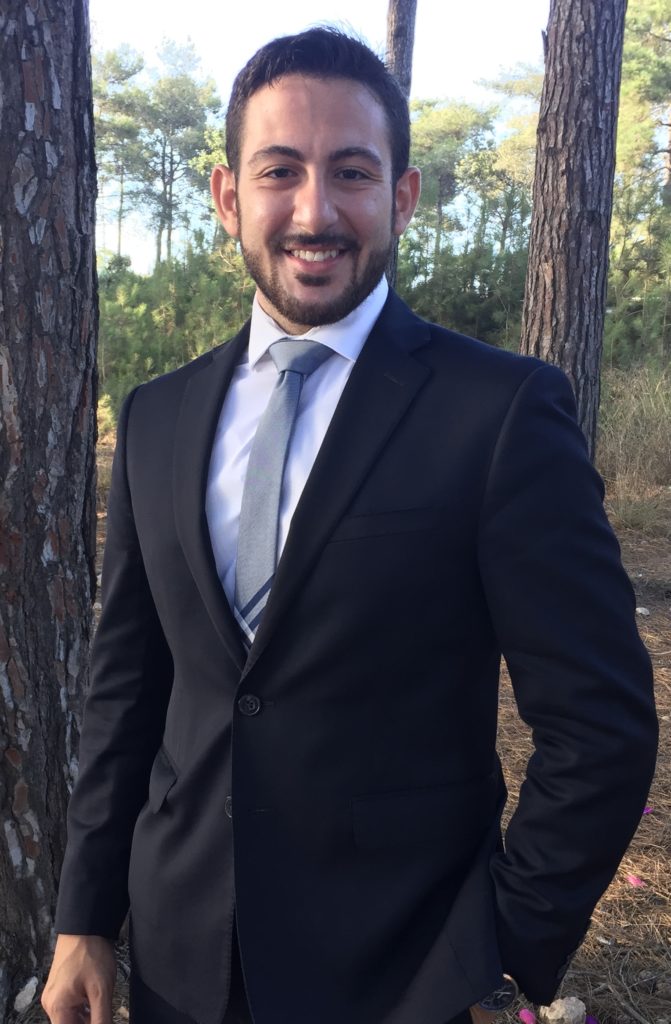
Jacob Y. Pesachov is a scholar pursuing the Maimonidean ideal, holding a medical degree from the Technion-Israel Institute of Technology and currently completing rabbinical studies at the Beit Medrash Govoha for Medical Halacha. With the intentions of entering pediatrics and specializing in clinical genetics, Jacob plans to explore and participate in the active network of genetics, bioethics and medical education. Additionally, Jacob intends to undertake a novel research initiative in his rabbinical studies and examine the intersection of Halakha and public health.
An academic by nature, Jacob has contributed to and advanced research in fields including dermatology, rheumatology, Jewish history and Halakhic jurisprudence. Recognized by his alma mater for his scholarship in Jewish studies, Jacob was granted the Isaac Araten Memorial Award for Excellence in Biblical Studies by Yeshiva University in 2016. Furthermore, Jacob was awarded the Dr. Arthur Wolfish Medical Scholarship by the Israel Medical Association in 2017.
Jacob’s lineage is of Kavkazi origin, a subset of Mizrachi Jewry from Azerbaijan and the Caucasus Mountains. Discovering layers of his ancestry in recent years, Jacob has participated in the Avotaynu DNA Project and Mountain Jews DNA Project.
Film & Music:
Na’ama Keha
New York University
Master’s of Fine Arts Candidate in Film Production NYU Tisch
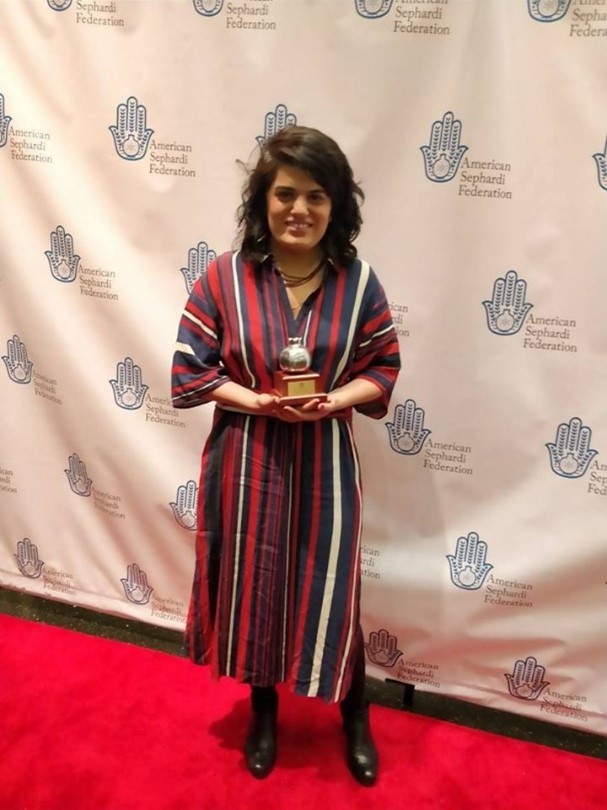
Born in an Israeli Kibbutz, to parents from Sephardic/Turkish and Yemenaite descends, Na’ama Keha is an award-winning New York-based filmmaker, currently pursuing her MFA in Film Production at NYU Tisch. She is the recipient of the Tisch Dean’s Fellowship, the ISEF Nina Weiner & Lily Safra International Fellowship, and the NYU Fusion Film Festival’s Grand Prize for the best graduate film. She was chosen as the recipient of the Ronit Elkabetz “Rising Star” Pomegranate Award, alongside French film producer and Pomegranate Award recipient, Said Ben Said. She wrote, directed, and produced KEEP IT COOL, starring two Netflix shows lead Actors, Michael Aloni & Ariel Mortman, which premiered at the Montreal World Film Festival. She wrote the short film, NOW AND FOREVER which premiered at the Venice International Film Festival. As part of her studies at NYU, she assisted Director Todd Solondz and worked as a Film Editor for Director Mike Newell. She graduated from Tel Aviv University magna cum laude, receiving the Dean’s Award for Excellence. She is currently developing her debut feature project, awarded with two NYU Provost’s writing fellowships at NYU London. Her 2nd feature film project is currently a finalist at the NYU Alfred Sloan Feature Award.
Prior to filmmaking, at the age of 18, Na’ama began her career as a news reporter at ‘Galei Zahal’, Israel’s National Radio Network. As a Journalist, she broadcasted live during the 2nd Lebanese War and the 2nd Intifida.
Noamme Elisha
Duke University
Master’s Degree Candidate in Business Administration
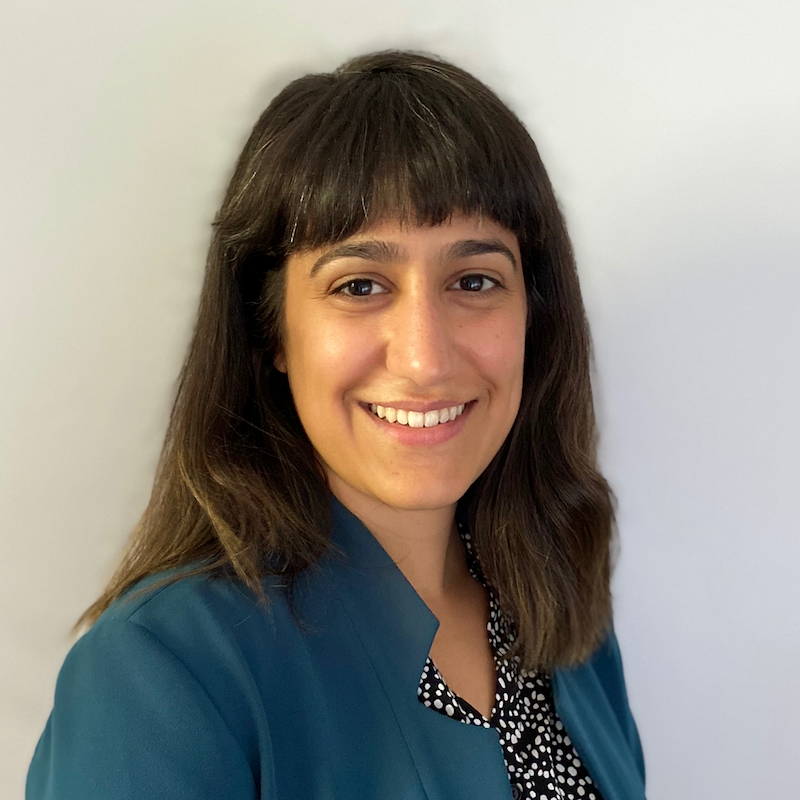
Noamme Elisha has worked in the music industry for over a decade, producing live shows for critically-acclaimed rock and pop artists worldwide. She is currently pursuing her MBA at Duke University to pursue a career in the intersection of music and technology. Noamme was born in Israel, grew up in Romania, and calls Brooklyn home.
ASF Broome & Allen Scholarship Recipients
Robert Carlson
Brandeis University
Bachelor’s Degree Candidate, Near Eastern and Judaic Studies
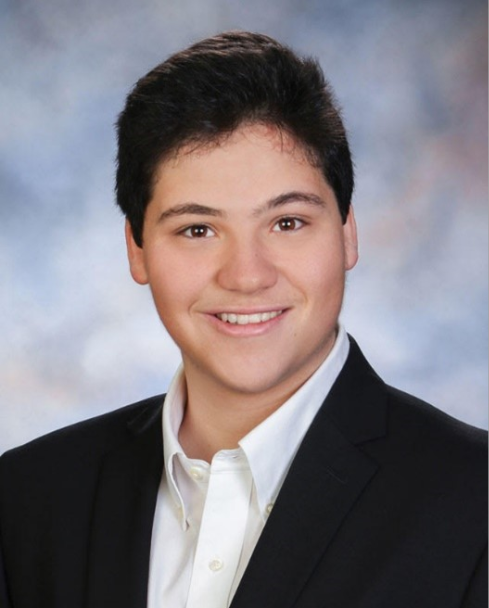
Robert Carlson is a native of Los Angeles, California and attends Brandeis University where he is pursuing a degree in Near Eastern and Judaic Studies. Robert’s mother’s family comes from the Judeo-Spanish-speaking communities of Ottoman Turkey, Rhodes and Istanbul. His great grandparents were active members of both the Sephardic Hebrew Center (for the Jews of Rhodes) and Tifereth Israel in Los Angeles (for the Jews of Turkey). From a young age, Robert was instilled with a love for all things Sephardic, especially the cuisine and Judeo-Spanish language (Ladino or simply “Espanyol muestro” as it was called), but he felt that he wanted to be more immersed in the traditions of his family’s past. As a young kid, Robert grew more attached to learning Sephardic customs and attending the Sephardic synagogue, enchanted by the makam and unique hazzanuth. With a passion for Judaica and the history of Jews, especially Jewish communities in the Islamic world and the Mediterranean, Robert was able to explore his own Sephardic roots, learning Judeo-Spanish by reading and asking his grandmother, and teaching himself to chant prayers. Attending Milken Community High School, a school with a large Sephardic population, Robert felt motivated to continue his studies, and he was able to improve his Hebrew language skills and formal Jewish education. In high school, Robert also became involved with the Sephardic Educational Center, directed by Neil Sheff, and his community rabbi, Daniel Bouskila. The SEC represented the tolerant, moderate, and joyful approach to traditional Judaism that Robert loves, and he proudly serves on the board of the SEC today, and is also a member of the Sephardic Brotherhood of America. Robert was also a Bronfoman fellow, spending summer of 2018 in Israel, and a panel speaker at the International Day of Ladino in NYC in 2020. Robert is planning to study next year at Hebrew University and focus on Sephardic history and the Arabic language. Robert believes that the history, culture, and folklore of Jewry from across the Mediterranean and Islamic world should be appreciated and celebrated. Equally important to our cuisine and culture, however, is the Sephardic love of Israel and G-d, and our philosophy of unity, continuity, and loyalty to the traditions of our forefathers and mothers, values which should never be forgotten. The love of being Jewish, the love of Torah and tradition, and the communal emphasis with a lack of denominational division are all Sephardic values which can benefit not only those with Sephardic heritage, but all of Am Yisrael, in its beautiful diversity. He is grateful to come from such a loving family and thanks his father, Robert, and his mother Carolyn, and his twin sister Rachel, for their continued support and love. He hopes to honor the memory of his great grandparents, Esther, Mordo, Ephraim, and Lilian, with his love of Jewish history and culture.
Isaac de Castro
Cornell University
Bachelor’s Degree Candidate, History of Architecture and Urban Development
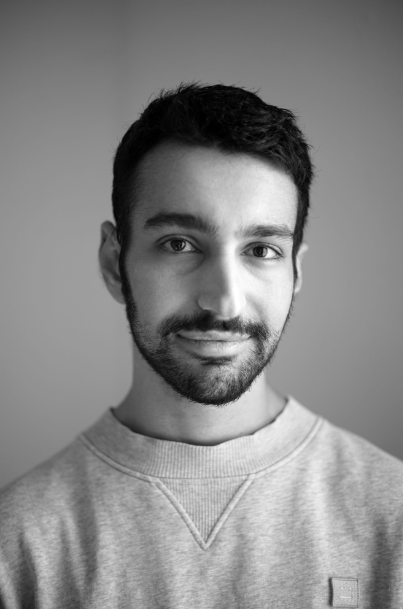
Originally from Panama City, Panama, Isaac de Castro is a senior at Cornell University studying History of Architecture and Urban Development. He is the co-founder of Jewish and Israel advocacy groups Jewish on Campus and New Zionist Congress. Isaac’s remarks at the ASF Young Leaders’ “Beyond the Curriculum: A Jewish Communal Discussion” were published by the Times of Israel and Isaac was featured in the Sephardi Ideas Monthly.
Julia Jassey
University of Chicago
Bachelor’s Degree Candidate, Political Science, English, and Jewish Studies
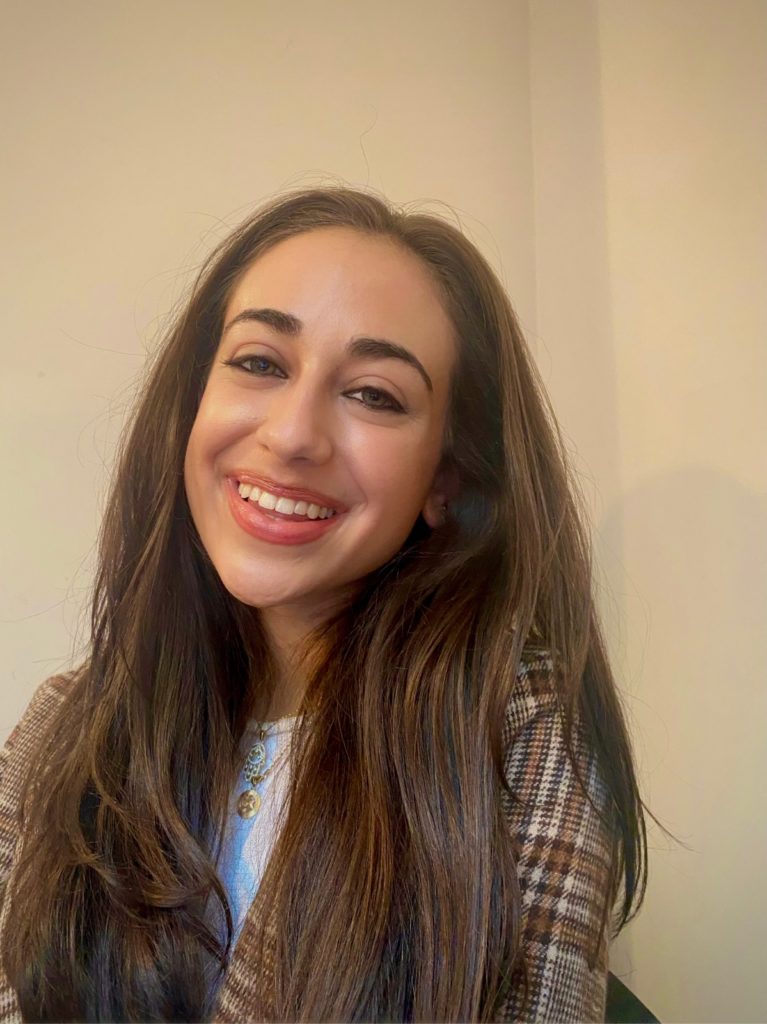
Julia Jassey is the co-founder and CEO of Jewish on Campus, fellow and podcast host at Opendor Media, and an ASF Young Leader. Julia draws from her distinct background as an American Jewish woman from Mizrahi, Sephardi, and Ashkenazi ancestry as an advocate for the Jewish community. As a student at the University of Chicago studying Political Science, English, and Jewish Studies, Julia hopes to use her experiences to cultivate specializations in international conflict resolution and public policy.
Isabella Rose Soffer
Duke University
Bachelor’s Degree Candidate, Department of Economics; Focus: Financial Analysis and Marketing Strategies

Isabella Rose Soffer is the granddaughter of a Sephardic Jew born in Cairo, Egypt and an American Ashkenazi Jew. She is a junior at Duke University majoring in economics with a finance concentration, minoring in Italian studies, and pursuing a certificate in markets and management studies. She grew up in Long Island, New York where she performed in her temple Beth Shalom’s chorus for many years. Throughout her undergraduate experiences, she has continued her singing career in Duke’s Out of the Blue A Capella group. She is also a member of Duke’s Association for Business Oriented Women, and the TAMID Group, which explores consulting, finance, and entrepreneurship focusing specifically on Israeli startup culture. Members participate in an interactive educational program that integrates business principles with Israel’s economic landscape. Isabella is also an active member of Duke University’s Chabad and has appreciated continuing her studies of Judaism and becoming a member of the welcoming Jewish community while at Duke. She is looking forward to joining the team at Morgan Stanley as an incoming investment banking summer analyst this summer. Isabella is incredibly grateful for this prestigious scholarship award.
Daniel Stauber
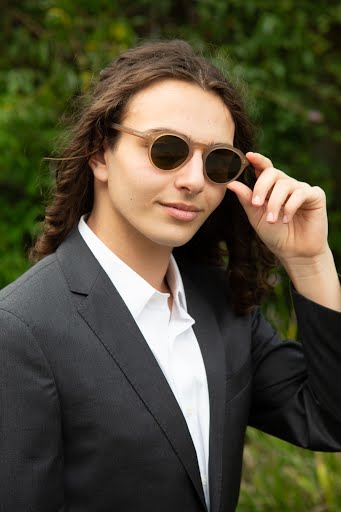
Since I can remember, I have been invested in Sephardic culture. My first school was a Sephardic Jewish school, where I learned Hebrew and prayers the Sephardic way. As I grew older, I became interested in my family’s history, wondering what Sephardic really meant, and how it aligns with my heritage. My parents would tell me stories of my great-great-grandmother, Leah Cohen (Mrs. Marco Cohen), who helped found the Sephardic Home for the Aged many years ago in New York City. Her initiative to start such a project as a woman in that era could only be attributed to her genuine love of and desire to care for her community, the Sephardic community. I aspire to be like my great-great-grandmother one day, making an impact on the world around me, both locally and globally. I have already begun my local service, as I created a community project to feed the young children at a shelter in East LA. For more than five years, I have continued to lead this tzedakah, growing it to include over 10 volunteers, serving full meals, and even personally tutoring the children. Not only do I want to continue impacting my local community, no matter where I am, but I also intend to support the global community. Educationally speaking, ever since I heard about biomedical engineering—a profession where you research cures and build life-changing medical devices—I knew I wanted to do it. And I know exactly what I want to do: make the world void of genetic disease. When I was five, I witnessed my older brother, Jack, have a seizure for the first time. As I grew up, I began realizing the significant social disability that arose from his brain surgery. He was mocked for talking weirdly, laughed at for misunderstanding sarcasm, and feared for compulsively needing to touch people. But I got to know Jack and the person he really is, despite his social disability. It pains me to see him go through life with a disability that he could not control, one that dictates his life and limits his potential. Following in the footsteps of my great-great-grandmother, I will continue to embody and study the teachings of the Torah and the Talmud as I dedicate myself to positively impacting the world around me, and eventually, cure all genetic diseases.
Benjamin Zatz
University of Vermont
Bachelor’s Degree Candidate, Agroecology
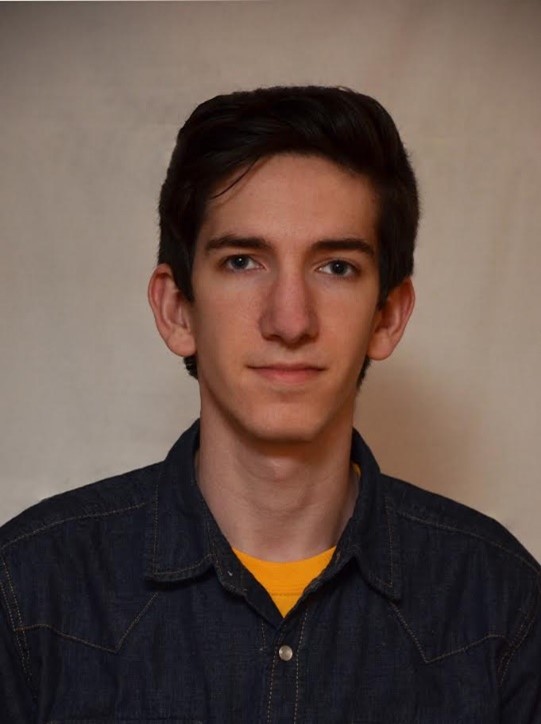
Benjamin Zatz is a freshman at the University of Vermont majoring in Agroecology. He grew up in Teaneck, New Jersey in a family of mixed Ashkenazi, Sephardic, and Scottish heritage. He previously co-led a Jewish dance group called JewDA and is now an active member of the Israel Committee at UVM Hillel. He conducted agricultural research on the algae Dunaliella salina to increase its yield of β-carotene through the use of sonication. This research won various awards including the In Vitro Biology Award and first place at the New Jersey FFA State Agriscience Fair. During the pandemic, he became involved in activism for the Jewish community through social media and has since begun to manage and create content for the Instagram of the American Sephardi Federation.